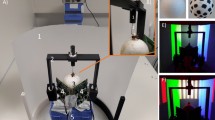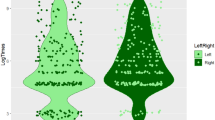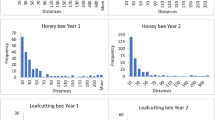Abstract
Foraging bees use colour cues to help identify rewarding from unrewarding flowers, but as conditions change, bees may require behavioural flexibility to reverse their learnt preferences. Perceptually similar colours are learnt slowly by honeybees and thus potentially pose a difficult task to reverse-learn. Free-flying honeybees (N = 32) were trained to learn a fine colour discrimination task that could be resolved at ca. 70% accuracy following extended differential conditioning, and were then tested for their ability to reverse-learn this visual problem multiple times. Subsequent analyses identified three different strategies: ‘Deliberative-decisive’ bees that could, after several flower visits, decisively make a large change to learnt preferences; ‘Fickle- circumspect’ bees that changed their preferences by a small amount every time they encountered evidence in their environment; and ‘Stay’ bees that did not change from their initially learnt preference. The next aim was to determine if there was any advantage to a colony in maintaining bees with a variety of decision-making strategies. To understand the potential benefits of the observed behavioural diversity agent-based computer simulations were conducted by systematically varying parameters for flower reward switch oscillation frequency, flower handling time, and fraction of defective ‘target’ stimuli. These simulations revealed that when there is a relatively high frequency of reward reversals, fickle-circumspect bees are more efficient at nectar collection. However, as the reward reversal frequency decreases the performance of deliberative-decisive bees becomes most efficient. These findings show there to be an evolutionary benefit for honeybee colonies with individuals exhibiting these different strategies for managing resource change. The strategies have similarities to some complex decision-making processes observed in humans, and algorithms implemented in artificial intelligence systems.
Similar content being viewed by others
Article PDF
Author information
Authors and Affiliations
Corresponding authors
Rights and permissions
About this article
Cite this article
Dyer, A., Dorin, A., Reinhardt, V. et al. Colour reverse learning and animal personalities: the advantage of behavioural diversity assessed with agent-based simulations. Nat Prec (2012). https://doi.org/10.1038/npre.2012.7037.1
Received:
Accepted:
Published:
DOI: https://doi.org/10.1038/npre.2012.7037.1



